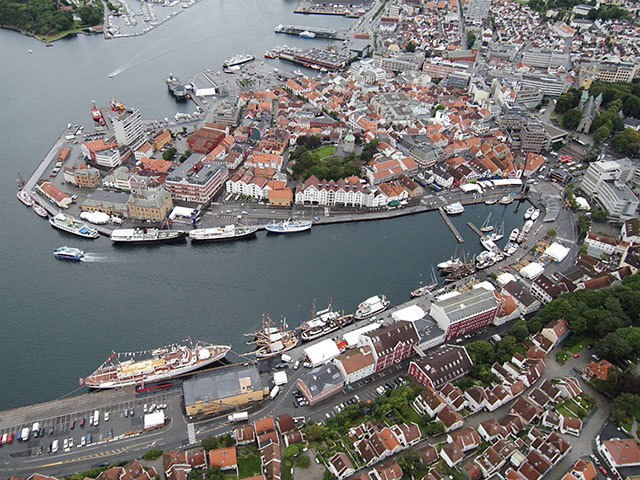
Norway’s bond market is feeling the squeeze and the country’s regional banks are the main victims.
Companies and banks seeking to raise debt are finding few willing investors out there, after life insurance companies filled up on bonds and real estate before the summer this year and as the plunging krone is keeping away foreign investors, according to DNB ASA, Norway’s largest lender.
“Many investors have been rather fully invested,” said Jan Krogh-Vennemo, global head fixed income sales at DNB. “When spreads first start widening buyers become cautious and there were some issuers, especially within finance, that were ready after the summer and needed money.”
The squeeze is mainly being felt for Norwegian savings banks. Spreads on five-year senior unsecured bank funding widened by 17 basis points last week to 105 basis points, the highest since February 2013, according to DNB.
Sparebank 1 SMN, for example, paid 105 basis points more than the Norwegian interbank offered rate when issuing 500 million kroner in 5-year floating rate notes this month. In May, the Trondheim-based bank raised 300 million kroner in a similar issue at Nibor plus 48 basis points.
“There is anxiety in the markets — China, stocks falling and oil prices falling,” Kjell Fordal, executive director finance at Sparebank 1 SMN, said. “The oil price fall creates more uncertainty about the Norwegian economy.”
The DNB High-Yield Norway Total Return Hedged Index is down 5 percent since the start of August.
Norwegian banks and the economy are feeling the squeeze as the plunge in crude prices buffets the economy of western Europe’s largest petroleum producer. The country’s central bank last week cut rates to a record low of 0.75 percent and said it’s prepared to ease further to rescue the economy from stalling.
“The market has developed negatively,” Fordal said. “Spreads for banks like us are higher than a few months ago. We don’t experience that as something specifically for us.”
Falling oil prices and rate cuts have also pushed down the krone about 14 percent against the euro since May, damping demand for Norwegian assets.
“Low oil prices make foreigners more uncertain of Norway as an investment option,” DNB’s Krogh-Vennemo said.
The slump makes it more expensive for investors to hedge debt in euro and dollar. Investors rolling over forwards then have to pay more for a new futures contract. Cash which they must get from either selling assets or from somewhere else, according to Krogh-Vennemo.
DNB said liquidity should improve in the credit markets in the next quarter.
“There are always some banks that hold money over the end of the quarter,” he said. “And we have passed a big tax maturity in September.”
Recommended for you
